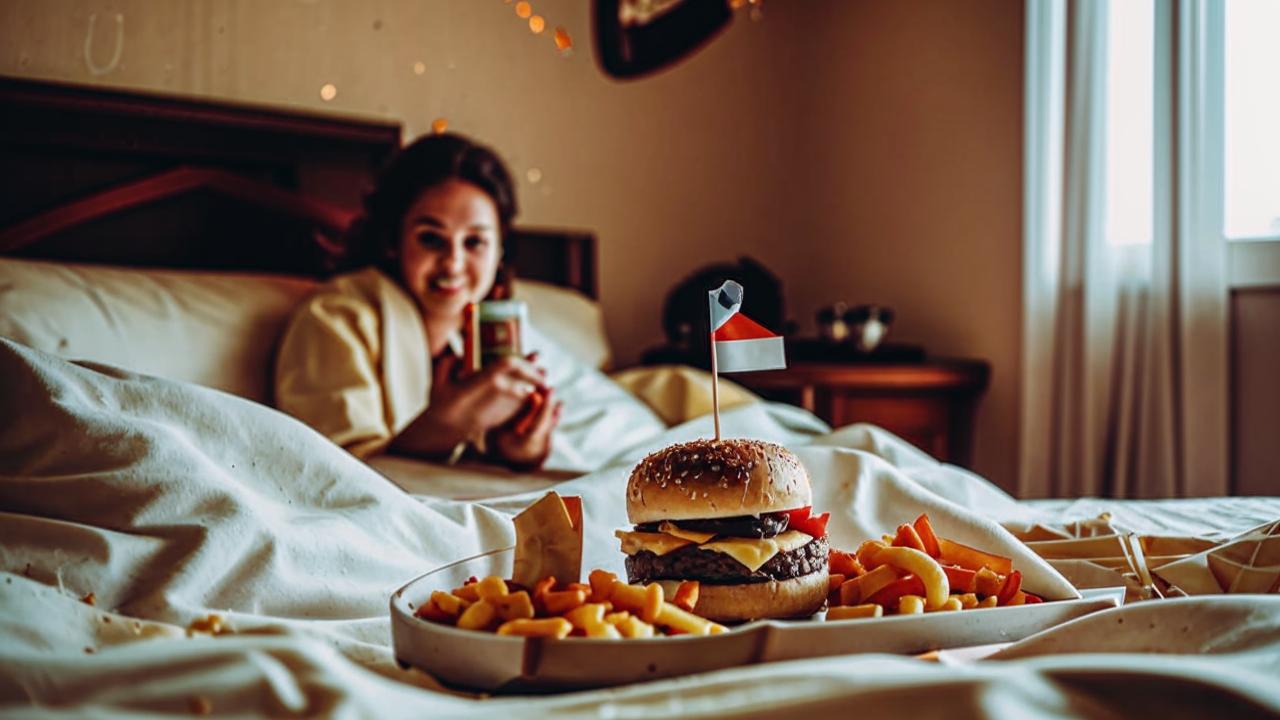Healthy eating is first and foremost about balance, moderation and variety. However, all of us sometimes have the desire to have a snack in the middle of the day or eat a pack of chips while watching a movie. In such cases, it is most often caused not by real, but by psychological hunger. How to identify and overcome it? Let’s find out together with psychologist Nadezhda Pozharova.
What is the difference between psychological hunger and real hunger?
Nadezhda: People often eat not because they want to, but because there are some conditions. For example, you go for a walk with a friend. Most likely you will go to a cafe, and there on an associative level you will want to buy coffee. Just like with watching a movie: you definitely want a pack of chips, cola or popcorn. It’s a kind of tradition.

Often food brings people together. Feasts, meetings, dates – these and other events that signal care, attention and love are connected to food. Here it is important to recognize the ritualistic nature of what is happening. Hunger in these situations can be misplaced. It is because of this that people have almost stopped distinguishing between a real need and a false feeling.
It is important to listen to your body, that is, to realize its needs. Very often people do not even realize if they really want to eat. They start to feel hunger when they see food.
Also, this is influenced by so many acquired habits. For example, many people think that they should eat three times a day, but not everyone is suitable for this. A person very often builds their relationship with food by the way they were taught, for example, as a child. It is very important to start researching your body and pay attention to what you eat, for what reasons, how taste preferences are formed. The need for food does not always mean hunger. You need to determine what you really want.
How do you determine what kind of hunger you are experiencing?
Physical hunger comes on gradually, a few hours after eating, and disappears when you are satiated. Eating leads to a state of satisfaction. Emotional hunger, on the other hand, comes on suddenly, does not go away when satiated and often causes feelings of guilt.

How to avoid psychological hunger and overeating?
Hope: If we are talking about a person overeating and it happens regularly, it is a very serious issue. Often people don’t realize what they are trying to do in this way. Any eating disorder is psychological in nature. A person often tries to “binge” on stress or restrict themselves from eating for some purpose. For example, to encourage or punish. It’s like in childhood: behave well – keep candy, bad – no candy will not be.
How can I help myself in the fight against psychological hunger or overeating? If you control your own eating behavior, but you break down, feel anxiety, guilt, shame, and every day you are getting worse, it is worth contacting a psychologist.

Listen to your body and pay attention to your emotional state. Ask yourself: “Am I really hungry or am I just bored?” If you realize that your hunger is false, then shift your attention to other activities: reading, sleeping, walking.
Bad habits are hard to get rid of, but if you want to avoid the false desire to snack, you need to be more mindful of your diet. Diversify your diet with proteins and healthy fats, turn off the TV during meals and concentrate on cooked food.





